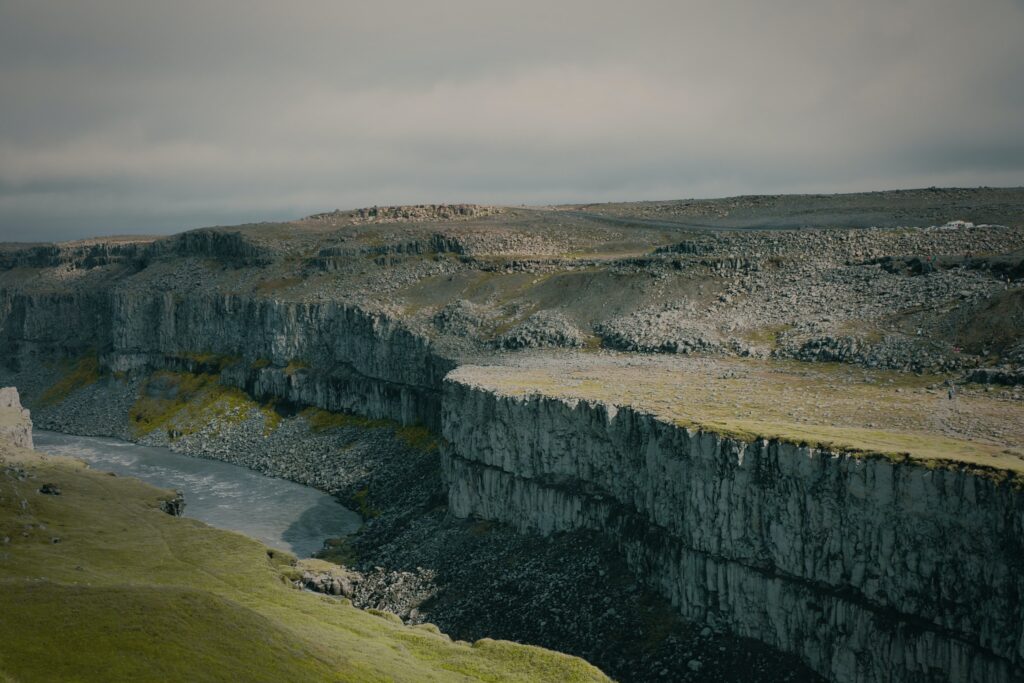
Ground crack and new ocean
Geologists expect that the tectonic plates that make up the continent of Africa will be torn in a period of five to ten million years and may expand to such an extent that it will divide the continent into two parts forming a new ocean.
Tectonic plates in the Ethiopian Afar region, the Arab, Nubian, and Somali regions are slowly turning away from each other. This fissure gradually expanded to create a massive crack that would slowly form a new ocean, according to NBC News.
“We can see that the crust of the new ocean is beginning to form, because it is distinctly different from the continental crust in its composition and density,” Christopher Moore, PhD student at the University of Leeds, told NBC.
Unique opportunity for a new ocean
Scientists think that the Earth’s panels will fall apart for some time, but the new GPS improvements help them know exactly what is happening beneath the Earth’s surface.
According to NBC, the new ocean will give geologists an unprecedented opportunity to see how such a tectonic split occurs. Although the tectonic plates of the Earth are constantly moving, scientists still do not know the reason that drives these three pieces apart.
Gradual expansion
The theory now is that huge, superheated rocks emanate from the Earth’s crust at the point where the three panels meet, but it is difficult to verify such ideas.
“With GPS measurements, we can measure movement rates even if it is a few millimeters a year, and we will be able to better understand what is happening by collecting more measurements from the GPS,” Ken MacDonald, a marine geophysicist in Santa Barbara, told NBC.
Astronomers also pointed out that a complex process taking place this period in the arid region of eastern Africa, may lead to the split of the continent into two parts and the birth of a new ocean after a long time.
In detail, the US News Network NBC News reported that the Afar region in East Africa, which is one of the hottest places on earth, has a meeting point of 3 tectonic plates.
The satellites have observed a very slow separation of these plates, a complex geological process that scientists say will eventually split the continent into two parts, and the emergence of a new ocean after millions of years.
New ocean in 5 to 10 million years
In turn, satellite measurements revealed a 35-mile long crack in the Ethiopian desert, and it is believed that the new ocean of Africa will take between 5 and 10 million years to form.
The Earth’s crust is made up of dozens of large tectonic plates, which are irregular shaped slabs of rock, constantly cracking or expanding.
The reason is unknown.
The cause of the “disintegration of the continent” is still unknown, while some experts believe that this is due to very hot rocks rising from under the mantle.
Geophysicist Ken MacDonald, professor emeritus at the University of California, said: “GPS devices have revolutionized this field, allowing scientists to make accurate measurements of how the Earth moves over time, adding:” Using GPS, you can measure movement rates In the year, “and thus estimate the shape of the Earth over time.”
What If a new ocean appear in Africa ?
If a new ocean were to form in Africa, it would likely be the result of a massive geological event, such as the splitting of the African continent into two or more pieces due to tectonic activity. This would require a tremendous amount of energy, and the process would take place over millions of years.
The creation of a new ocean in Africa would have significant impacts on the planet’s geography, climate, and ecosystems. It would alter ocean currents, sea levels, and weather patterns, affecting everything from fishing and shipping industries to agriculture and tourism. It would also create new opportunities for exploration and resource extraction, such as oil and gas reserves and deep-sea minerals.
However, such a massive geological event is not likely to occur in the near future, as the Earth’s tectonic plates move very slowly and changes to the planet’s surface typically take place over millions of years.
the African continent is part of the larger tectonic plate known as the African Plate. This plate is bordered by other plates, including the Eurasian Plate to the north, the Arabian Plate to the northeast, the Indian Plate to the east, and the Antarctic Plate to the south.
The boundaries between these plates are not fixed and can shift over time due to the movement of the Earth’s tectonic plates. In some cases, the movement of these plates can lead to the formation of new oceans or the closing of existing ones, as was the case with the formation of the Atlantic Ocean.
However, the formation of a new ocean in Africa is not a simple or straightforward process. It would require the splitting of the African Plate into two or more pieces, which would require a significant amount of energy and time. This process would likely be accompanied by large-scale volcanic activity and earthquakes, which would have significant impacts on the surrounding regions.
In addition, the formation of a new ocean in Africa would have far-reaching impacts on global climate and ocean currents. It would also create new opportunities for resource extraction, but would also present significant challenges for countries and communities that rely on coastal ecosystems for their livelihoods.
Overall, while the formation of a new ocean in Africa is not impossible, it is highly unlikely to occur in the near future and would have significant impacts on the planet if it were to happen.
